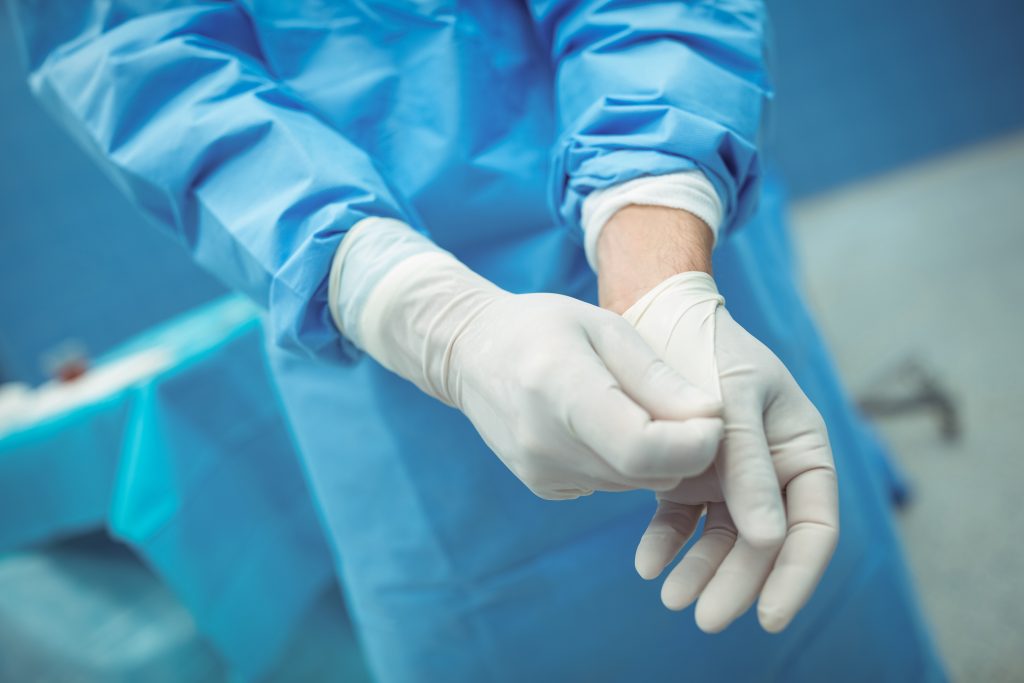
Hamilton Surgical Transitions Remote Care Monitoring program addresses COVID-19 surgical backlog and helps patients get home faster
HAMILTON, ON – Hamilton Health Sciences (HHS) and St. Joseph’s Healthcare Hamilton (SJHH) have joined forces to help conquer the ongoing concern of surgical backlog due to months of limited services.
“As a result of COVID-19, and the necessary measures to increase capacity, HHS postponed over 5,600 non-urgent/non-emergent procedures since April 12,” says Dr. P.J. Devereaux, cardiologist and perioperative care physician at Hamilton Health Sciences. “HHS is still in the process of ramping up surgical procedures, so this program provides a mechanism to facilitate more patients to receive timely surgery.” SJHH has postponed more than 5,700 non-urgent/non-emergent surgical procedures during this same time at the height of the third wave.
In early spring of this year, Ontario hospital systems received funding for regional and local coordinated initiatives that would provide patients with virtual care options to support surgical care transitions. With this, HHS and SJHH sprung into action to set up the innovative Surgical Transitions program. This program established a joint virtual command centre to provide patients with the support of a Nursing and Physician hospital-to-home virtual care team, to help ensure a successful recovery at home with the support of remote automated patient monitoring technology by Cloud DX.
The Surgical Transitions program, anchored by the combined Division of Perioperative Care, is based on the latest Canadian research led by a team of surgical care researchers at the Population Health Research Institute, a joint institute of HHS and McMaster University. Enrolled patients go home with the Cloud DX Connected Health kit, featuring a tablet paired with equipment to capture vital signs and weight. The technology is used by the virtual care team to remotely monitor the patient from the hospital command centre. The virtual care regimen includes daily patient vital signs review, nurse video visits and assessments, surgical wound photography and review, medication error detection and correction, and pain assessment. Together, the nurses and physicians review the patients’ recovery daily, and nurses escalate care when the attention of a physician is needed. Upon discharge from the program, the patient returns the device to the command centre.
“It is our goal that the innovative Surgical Transition program will provide support to post-operative patients as they transition home, simultaneously decreasing the need for returns to the Emergency Department and readmission,” says Dr. Rahima Nenshi, the clinical lead for Perioperative Care and the director of Acute Care Surgery at SJHH. “This will support the ramp up of surgeries that have been delayed and are so desperately needed.”
To date, the initiative has served surgical patients from various care pathways over the past three and a half-month period at both SJHH and HHS. This program improves the patient experience, increases accessibility to care, gives peace of mind and helps support patients and their families in the comfort of their home environment.
The program operates seven days a week, 14 hours a day to support patients as they recover at home with remote home monitoring technology. The program facilitates early discharge, as well as reduces length of stay, rehospitalisation and unnecessary trips to the Emergency Department.
The team is comprised of an interprofessional team of Perioperative physicians – including cardiologists, surgeons, and anesthesiologists and nurses to support virtual rounds and patient care. Jennifer Lounsbury, registered nurse and Chief of Interprofessional Practice, Oncology, Critical Care and Palliative Care at HHS adds that, “having nurses, physicians, and surgeons work together to help manage patients virtually after hospital discharge has enormous potential to help deal with the backlog of patients waiting for surgery due to COVID-19 pandemic, which resulted in the delay of a lot of important elective surgery.”
One patient that was recently discharged writes, “I just wanted to say thank you to your team. I’m really grateful for this program. Even though this has been a crazy journey, I felt like I wasn’t alone. It was reassuring to have a group of capable people helping me and I really liked these daily check-ins”.
The Greater Hamilton Health Network initiated and supports the Surgical Transitions Remote Patient Monitoring pilot that is providing patients with new virtual care options, to support surgical care transitions.
The program is proving to be invaluable.
– 30 –
For more information, please contact:
Wendy Stewart
Communications & Public Affairs
Hamilton Health Sciences
stewartwen@hhsc.ca
Maria Hayes
Public Affairs
St. Joseph’s Healthcare Hamilton
mhayes@stjosham.on.ca
